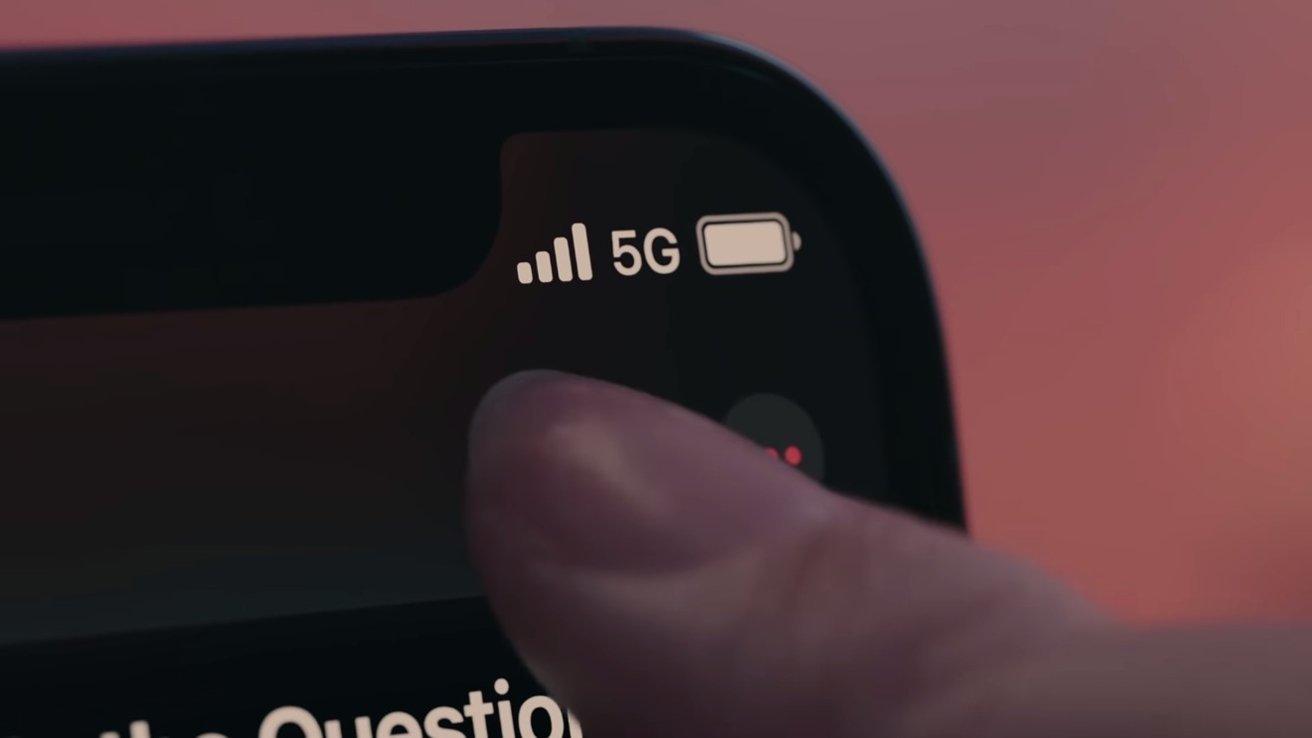TSMC expected to produce Apple's 5G iPhone modem in 2023
Apple will be leaning on its long-time chip partner TSMC for the production of its iPhone modem, a report claims, adding fuel to rumors that Apple will be using its own modem designs in its flagship product by 2023.

Apple has been rumored to be working on a modem for quite a while, to replace the Qualcomm component currently used in the iPhone. While speculation put forward the idea that it will be out by 2023, a report indicates that TSMC will be producing the part on Apple's behalf.
The modem will use TSMC's 4-nanometer technology, four people familiar with the initiative advised to Nikkei Asia. Rather than just the modem, the sources also claim Apple is working on other connected components, including radio frequency and millimeter wave parts that connect to the modem itself, as well as a power management chip just for the modem.
The report follows a November 16 claim by Qualcomm that it estimates it would only provide around 20% of the modems Apple would need for the iPhone in 2023. Qualcomm didn't state where it thought Apple would source other modems, but creating its own seems to be the most likely outcome.
Analyst Ming-Chi Kuo also forecasted in May that Apple's first modem attempt could land as early as 2023.
Qualcomm is the current supplier of modems to Apple after reaching a modem licensing deal in April 2019, ending a major patent licensing trial. The deal also included a multi-year chipset supply agreement and a six-year license agreement.
In July 2019, after Intel signaled its exit from the modem business, Apple signed a billion-dollar deal to acquire related assets, including patents, IP, and key personnel. The purchase effectively handed Apple everything it needed to create its own 5G modems.
Read on AppleInsider

Apple has been rumored to be working on a modem for quite a while, to replace the Qualcomm component currently used in the iPhone. While speculation put forward the idea that it will be out by 2023, a report indicates that TSMC will be producing the part on Apple's behalf.
The modem will use TSMC's 4-nanometer technology, four people familiar with the initiative advised to Nikkei Asia. Rather than just the modem, the sources also claim Apple is working on other connected components, including radio frequency and millimeter wave parts that connect to the modem itself, as well as a power management chip just for the modem.
The report follows a November 16 claim by Qualcomm that it estimates it would only provide around 20% of the modems Apple would need for the iPhone in 2023. Qualcomm didn't state where it thought Apple would source other modems, but creating its own seems to be the most likely outcome.
Analyst Ming-Chi Kuo also forecasted in May that Apple's first modem attempt could land as early as 2023.
Qualcomm is the current supplier of modems to Apple after reaching a modem licensing deal in April 2019, ending a major patent licensing trial. The deal also included a multi-year chipset supply agreement and a six-year license agreement.
In July 2019, after Intel signaled its exit from the modem business, Apple signed a billion-dollar deal to acquire related assets, including patents, IP, and key personnel. The purchase effectively handed Apple everything it needed to create its own 5G modems.
Read on AppleInsider

Comments
Intel tried and failed. (of course Intel hasn't exactly been wowing with anything lately.) Ideally, Apple will have a modem that's on par with QC and that they can integrate into their chips, maximizing power efficiency and manufacturing efficiency - I hope they succeed.
Apple isn't the only best in class chip designer out there and they are competing with companies like Qualcomm and Huawei which have decades of accumulated R&D and knowhow in modems, antenna designs and were architects in the core technologies behind 5G.
Just having an own brand offering will suffice and if it isn't the best or equal best out there, few people will change their purchase plans for that alone.
https://newsroom.intel.com/news-releases/intel-modem-statement/
"in the smartphone modem business it has become apparent that there is no clear path to profitability and positive returns"
They said they'd continue to invest in 5G for PCs and it says here they will use MediaTek for the modem:
https://newsroom.intel.com/news/intel-mediatek-partner-deliver-5g-pc/
There's nothing to indicate that making a modem was a problem, just that the manufacturing wouldn't be profitable for them. It says here the Qualcomm 5G modem costs $40-90, depending on the model:
https://wccftech.com/iphone-12-pro-costs-406-to-make/
If Apple could get near a $40 manufacturing cost, that would be great for entry level cellular products like the iPad where they charge around $150 for the cellular model. They can offer them on Macs too.
Apple has used Intel modems before and even when they performed worse than Qualcomm, it didn't affect sales. Reviewers try to make a big deal of it but even in a low signal area, they got 60Mbps on Intel vs 100Mbps on Qualcomm. When a rare low signal area is still fast enough to stream 4K video, it's a non-issue.
https://www.pcmag.com/news/confirmed-iphone-11-series-phones-have-intel-modems
https://www.pcmag.com/news/study-weak-signals-crush-intel-iphones
Apple is apparently contributing a lot to Qualcomm's revenue:
https://www.nasdaq.com/articles/qualcomm%3A-apple-modem-worries-are-overblown-says-top-analyst-2021-09-11
This makes sense because $40 x 200m iPhones = $8b. Qualcomm made around $23b in 2020. Losing 1/3 or more of their revenue would be quite a hit. That link suggests Apple will still pay licensing fees so the amount would be less.
While I do agree that Qualcomm is the incumbent champion for modems. They aren't unstoppable. Their chip designers are NOT better than Apple's. Also, Apple has been doing their own antenna's for many years now. Apple has been working on their own modem business for many years now, before the Intel/Infineon acquisition. Remember, Apple used other modems before 5G and nobody knew the difference. Expect the same once Apple moves to their own modems. Again, all things being equal, expect Apple to have a TSMC process node advantage over Qualcomm.